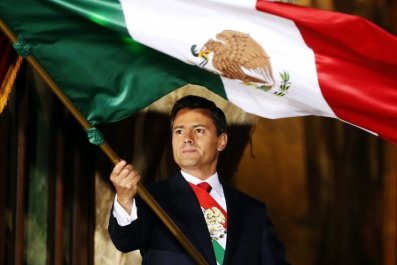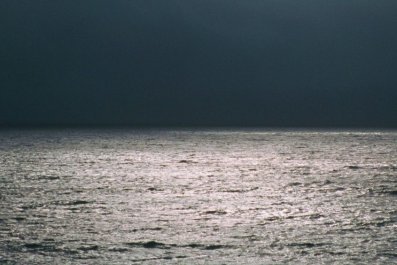The CIA mole-catcher's memoir that inspired ABC's The Assets, the espionage miniseries debuting on January 2, has just one brief mention of the National Security Agency - and it's not very flattering. The NSA was such a nonfactor in the CIA's desperate hunt for a Soviet spy in its ranks 25 years ago, says Sandra Grimes - whose astonishing memoir, Circle of Treason: A CIA Account of Traitor Aldrich Ames and the Men He Betrayed, was published in 2012 - that she had forgotten about it until I inquired this week.
"I must admit, I had forgotten that there was any mention of NSA in the book," said Grimes. "I assume they were basically nonparticipants."
The all-ears agency didn't have anything meaningful to add back in the early 1980s as Grimes and her colleagues raced to find out why the CIA's spies in the Soviet Union - including high-ranking Soviet officials on its payroll - were being killed off, one by one. The main players in the drama were the CIA and the FBI, who held all-day and even all-night conferences to solve the mystery.
"NSA representatives attended at least one of these conferences, because of the continuing theory that our communications had been compromised," Grimes writes. But that red herring was quickly disposed of - the CIA's Moscow leak was one of her co-workers, Aldrich Ames.
Indeed, the agency with the insatiable thirst for the world's phone calls and emails doesn't merit more than that one sentence in Grimes's memoir, co-authored with her partner in mole hunting, the late Jeanne Vertefeuille.
But surely, I asked Grimes, couldn't today's NSA, with its stunning reach and advanced metadata-mining tools, have accelerated the hunt for Ames, whose leaks led to the deaths of at least eight of the CIA's Soviet assets?
Unlikely, she said, explaining that Ames "operated here via dead drops and signal sites only" - marks on a mailbox telling his handlers that he had secrets to deliver - "and despite complete FBI [surveillance of him] from May 1993 until his arrest on February 21, 1994, he was never caught in the act."
That's the rub for NSA: Unless the enemy plays along, using cell phones and dispatching emails from traceable laptops, its big ears are not much use.
The Russians knew the NSA was listening to Ames, so they didn't use phones - or even typewriters, whose telltale click-clacks could be picked up by NSA microphones, former CIA officer Colin Thompson tells Newsweek. "The KGB didn't trust anything that could be intercepted," he says. "They didn't trust typewriters, even manual typewriters. Everything had to be handwritten. There were practically no files. They worked out of notes. God forbid they'd use an electronic typewriter."
Thompson doubts the Russian spies strolling around Washington, D.C., today are yakking on iPhones: "Now, maybe things have changed, but they're still Russians, they still have the same old fears of the West. It comes out in Putin very clearly.... "
Osama Bin Laden famously stymied the $80 billion-a-year U.S. intelligence apparatus for a decade by staying off the air and relying on couriers. And today, any terrorist with a brain knows he might as well order a hearse when he picks up a phone.
As a result, according to those in the know, the NSA's dragnet is being cluttered by the small fry and mujahideen wannabes. And even they are doing a better job of hiding from the NSA's trawlers, thanks to Edward Snowden. For every new weapon we bring to the table, the other guys eventually have a counter-weapon, as has always been.
What's the biggest weapon in intelligence? Same as always: defectors. A Russian showed up one day and pointed the CIA to Ames.
Indeed, it seems to be dawning on some people of consequence in Washington that the risks that come with giving the NSA free rein to rummage around in the lives of others aren't worth the take. Even President Obama, who appointed a panel to study the issue, seems to be groping toward some kind of modest limitations on NSA snooping.
All this has pushed the NSA public relations machine into high gear, with repeated claims that its metadata collection programs have foiled X number of major terrorist plots against the U.S. - the number keeps changing - without hard supporting evidence. And in a real sign of desperation, NSA boss Keith Alexander has insinuated, without foundation, that had NSA's current tools been available in 2001, the 9/11 attacks could have been headed off.
Few bought that line until December 27, when a federal judge in New York, William H. Pauley III, ruled in favor of the NSA's bulk-collection program. "We couldn't connect the dots" before 9/11, he said, "because we didn't have the dots."
Pauley's a dot short himself. As CNN's Peter Bergen, an expert on Bin Laden, wrote on Monday, summing up years of findings: "The key problem was one of information sharing, not the lack of information." U.S. intelligence was swimming in dots.
This is not a secret. It was the conclusion of the official 9/11 Commission and many other studies. In the summer of 2001, there were multiple streams of intelligence indicating that al Qaeda was "determined to strike in the U.S.," as the CIA fairly screamed in a report to the uninterested Bush White House only days before the attacks.
Even today, Bergen added, "the overall problem for U.S. counterterrorism officials is not that they don't gather enough information...but that they don't sufficiently understand or widely share the information."
For those of a certain age, watching The Assets will be like sinking into the Barcalounger for one of those doo-wop concerts PBS stations dust off for fundraising drives. Those who are old enough to remember the U.S.-Soviet spy wars - and those who participated in them - can be forgiven a tingle of nostalgia during the opening scene of The Assets, as Aldrich Ames nervously walks into a Russian embassy, eager to sell out.
"We feel that we were lucky in that we lived and worked in a simpler world," Grimes writes on the closing page of her memoir. "In the Cold War environment, there was only one main enemy who could harm us - the Soviet Union.
"The target was not amorphous, discrete, or widely scattered," as the terrorist foe is today, she adds. "We could concentrate our efforts on one country and one government.
"Alas, the colleagues who have come after us do not have that luxury."
Jeff Stein is a Newsweek contributing editor in Washington.
























